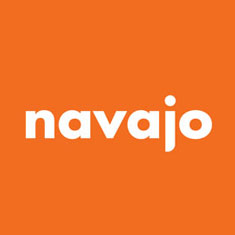
Historically, branding has been associated with a product or a business. In 1968, Andy Warhol famously said “In the future, everyone will be world-famous for 15 minutes”.
Today, technology and social media have thrown us into a public arena where as individuals, we have an opportunity for brand visibility far greater than Warhol’s prediction. Although “fame” is not on everyone’s agenda, we are all potentially forced to manage our personal brand, particularly when it comes to our career. 75% of HR departments are currently required to search job applicants online, so personal branding is becoming less of a competitive edge and more of a requirement.
But what exactly do we mean by a personal brand?
Ultimately, it’s about how others see us; the mental image they use when they think of us, our reputation or our “public image”. It’s made up of what we look like, where we go, what we say and where we stand on issues like equality, politics, education or global warming – it’s all on our Timeline (and in Google’s index). As Jeff Bezos (CEO of Amazon) said, “Your brand is what other people say about you when you’re not in the room”.
A strong personal brand can also yield great ROI, positively impact your career or affect millions of people, whether you are working for an organisation or leading one: Sheryl Sandberg (COO of Facebook) has crafted a personal brand which helps women LeanIn to leadership and spearheaded a whole generation of female empowerment.
Tim Ferriss crafted a personal brand for himself as a “corporate misfit” in his book
“The 4- Hour Work Week”, helping re-invent business practices for people who don’t conform to corporate structure, earning millions of followers and becoming a blueprint for modern entrepreneurship.
These examples highlight well-known success stories of people who’ve become leaders in their industry; but on the other end of the scale, what is the impact of employees’ personal brands on business?
Recent stats suggest that when brand messages are shared by employees who have strong personal brands, they get 561% more reach than the brand’s own communication channels. Similarly, employees have 10 times more followers than their company’s social media accounts and can convert business leads 7 times more frequently than traditional sales leads. (Ryan Erskin, Entrepreneur.com).
Employers should harness this value added by their staff and build business strategies around them; Companies that invest in employee branding initiatives have staff that are 27% more likely to feel optimistic about the company’s future, 20% more likely to stay at the company and 40% more likely to recommend the company, increasing the company’s brand value.
Additionally, employees can increase business visibility, transfer industry knowledge, create greater corporate brand perception and identify growing trends in industry. Developing “expert user staff” with strong personal brands fosters the role of brand ambassadors externally and allows businesses to show that they have the “best of the best” working for them.
So how would you go about enhancing your personal brand?
1. Define it
If you had a slogan what would that be? “Businesswoman”? “Hedge Fund Specialist”? “Lifestyle Guru” or “FinTech Leader”?
Think of all your strengths and the things you feel passionately about / its not just about your skills – what is the breadth of your knowledge and in what fields / industries? Are you often seen as the expert on a topic?
Once you’ve defined your personal brand, ensure it fulfils some criteria:
- What do you offer that is valuable and different?
- Your brand is based on trust, so support it with real results that truly reflect your skills
- Your brand should give an insight into what you can do for others i.e. a “Lifestyle Guru” could help you evaluate and reshape your life.
2. Build it
- Become really good at what makes you different: Enhance your knowledge through courses. Build expertise on a daily basis.
- Make your work visible: Focus on high-impact work that will have visible results and share them. But stay humble- its not about showing off your talents but rather delivering on your value.
- Be consistent and diligent: Every action either reinforces your brand or destroys it. Want to be known for being the best lawyer in the industry? Every legal case needs to deliver.
3. Promote it
- Have a presence: Make sure people can find you online. On social profiles, your personal website, blogs and listings.
- Be consistent: Make sure all your social channels use the same profile image or wording to make your brand more easily recognisable online.
- Use social media to share genuinely useful content. It should reinforce what you stand for and educate others.
It’s time to tap into the Power of You!
Thalia Iacovou is Director and Head of Brand Strategy at navajo
